When you wake up in Guatemala, the mountains reach out to welcome you. Their sloping, ancient roots rise up like fingers from underneath a mossy blanket.
Outside is green and gold. The sky, pale and new like a bowl of milk.
Dizzy yellow light seeps through the clouds, spilling onto the lap of the valley and illuminating creamy wisps of vapor that have settled lazily on the treetops.

The quietness is sublime.
I used to think that all beauty was obvious and full of grandeur, like the mountains I woke to every morning in Guatemala. But over the course of my time there, I was reminded that beauty comes in many forms and is often found in the places and people you least expect it to inhabit.
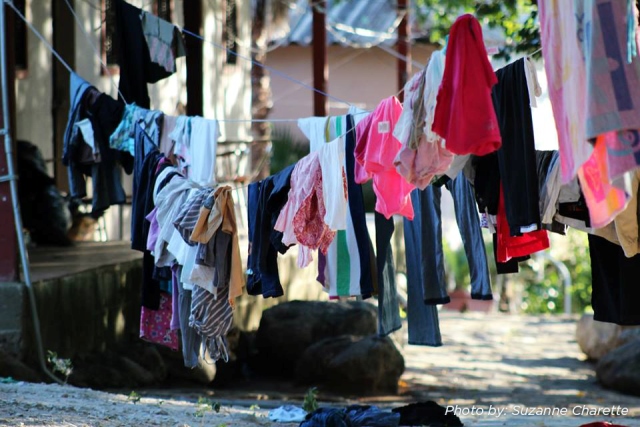
In Guatemala, the beauty I encountered floated in like an apparition, moving soundlessly like a stray cat entering a room and climbing onto my lap, or lingering in a shady walkway where nobody cared to explore.
I saw it on the holy ground of sorrow and on the threshing-floor of joy. I saw it in the old and the young. I saw it in the enduring strength of mothers and in the fluttering feet of children.
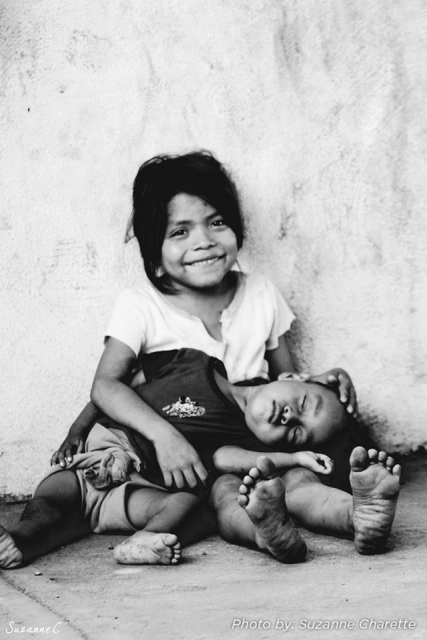
Before arriving, I was poised for what I expected to see: suffering, pain, loss, desperation, poverty. I did see all of those things . . . but it was the beauty I wasn’t expecting to encounter that stayed with me—that changed me the most.
****
Under a shady mango grove, a winding stone path leads to a bright outdoor atrium. A garden runs through the center, showcasing a spectrum of wildflower blooms, swaying palms, and succulents.
Beneath the covered awnings, old men sit in plastic chairs exchanging morning greetings in Spanish.
“Dios te bendiga.” God bless you.
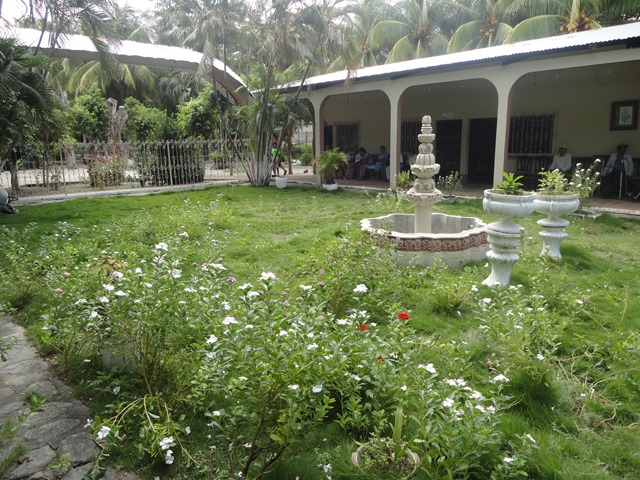
The smell of strong coffee wafts in from the cocina nearby. It feels like home.
Most of the elderly residents here have been abandoned by their families. Some, like 80-year-old Hipolito who has been blind since he was 17, have impairments that have followed them through life.
Many are in wheelchairs or employ walkers and canes to make their way around. Still, all are smiling, if not with their toothless mouths, with their eyes, with their outstretched hands, with their voices that convey gratitude and welcome to strangers and friends alike.
One man with horn-rimmed glasses and a jubilant way about him explained to a group of visitors that his family no longer visited him. An earnest pastor from Virginia asked the man if this was difficult for him.
“No,” he said, as the eyes behind the thick, well-worn spectacles, softened. “Porque tengo Jesús.” Because I have Jesus.
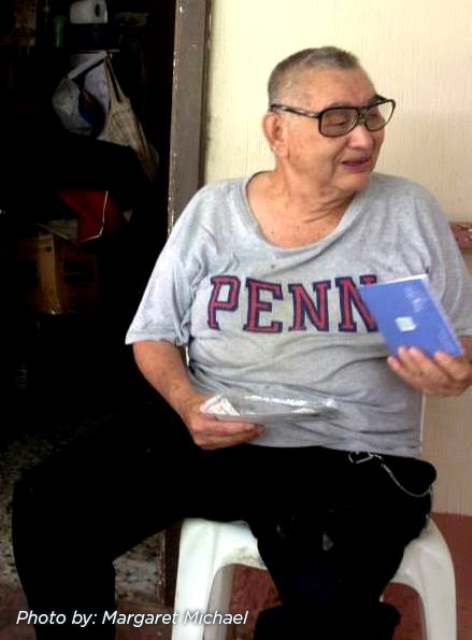
The pastor, now with brimming eyes, read from Isaiah 41, the old man’s favorite passage of Scripture.
The old man leaned forward and closed his eyes, savoring each word as the corners of his wrinkled mouth turned upward in gratitude.
His hands, knotted and leathery like an ancient tree, were folded neatly in his lap.
Beauty.
****
Gilmer sat cross-legged on the exam table, facing an open window.
He wasn’t crying like most of the other rescued children who arrive at the hospital by ambulance, frightened and exhausted by their ailments, frustrated by the thick, unmoving air that they’ve been struggling to inhale for hours as they made their way from remote mountain villages all over Guatemala.
Gilmer’s mother, Amelia, is a petite, dark-haired woman wearing a traditional Mayan dress. She lingers in the waiting room with three more children: an infant, a toddler, and an adolescent girl in a tattered green dress who was clearly protective of both.
This is only part of the family. In total, Amelia has six children, ranging from 4 months to 12 years. But Gilmer is the one who is sick. She and her tired convoy had traveled five hours that morning to reach the rescue center in the hospital.
“It is very difficult to provide for all of my children,” Amelia admits shyly, carefully forming her words as she rocks the infant in her lap. “My husband works the land. I cook and clean house, but that’s not enough.”
She explains that 11-year-old Gilmer hasn’t been eating for some time. I notice that his limbs are still and twig-like. His unruly hair has lost its sheen; his face is hollow, but alert.
In the examination room, a blonde-headed nursing volunteer lifts her stethoscope to Gilmer’s chest and listens carefully, weighing and measuring every labored breath.
“Look at him . . .” she said after taking a step back from the table. “Isn’t that amazing? He’s looking out the window with his one good eye. He won’t stop looking. He’s trying to see all that he can see.”
It was true. Gilmer was indeed blind in one eye, but his gaze was fixed on the mountains in the distance. The open window seemed to welcome him, beckoning a cool breeze as if to thank him for his undivided attention, for his unspoken admiration of the view.
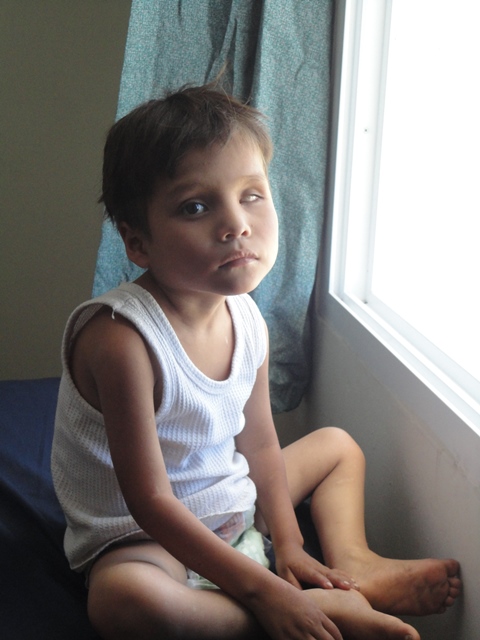
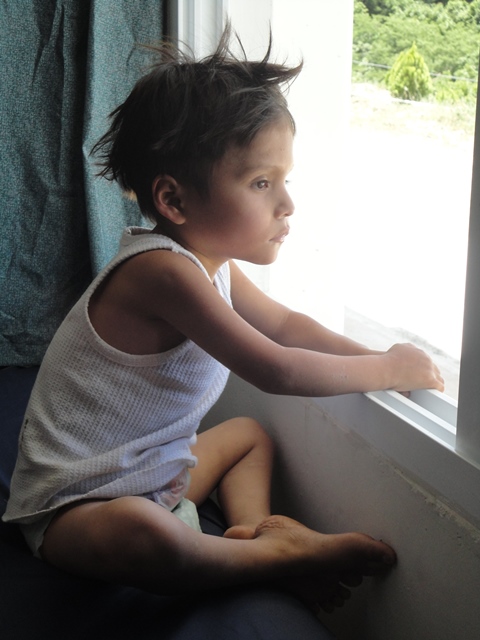
Everyone in the room paused to watch him.
It wasn’t until several days after meeting Gilmer that I remembered the words of the psalmist:
I lift up my eyes to the mountains—
where does my help come from?
My help comes from the Lord,
the Maker of heaven and earth. Psalm 121:1-2
Gilmer’s eyes—one blind, the other not—were on the mountains.
Although I don’t know what he was thinking or how he felt, I’ll always remember the sacredness of that moment. I’ve never met someone who saw so clearly.
Beauty.
****
Diego was found abandoned in a trash heap when he was only a month old.
Dirty leaflets of cardboard covered most of his body and insulated his distressed cries. It was only when a scuffle broke out between two hungry dogs that a few bystanders took notice of the discarded bundle.
They were fighting over Diego’s undetached umbilical cord.
Diego’s body was emaciated and covered with sores and insect bites when he was finally rescued by World Help’s partnering staff at Hope of Life. But even then, his large brown eyes were the same as they were when I saw him a few days ago running to greet the American couple who sponsors him—bright, curious, and eager.
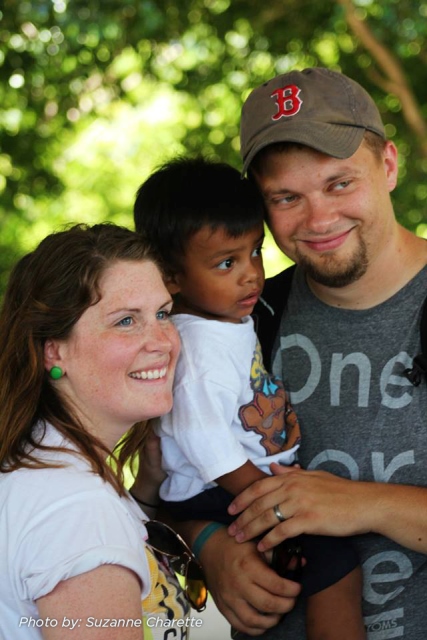 Strutting around in borrowed aviator sunglasses, he proudly parades his undeniable toddler-charm to a growing audience of visitors.
Strutting around in borrowed aviator sunglasses, he proudly parades his undeniable toddler-charm to a growing audience of visitors.
As he furiously raced around, captivated by the colors of his own imaginary world, the joy that followed him was palpable. It wasn’t a “despite-a -terrible- first -month-of- life” brand of joy. It was a joy that was intuitive and boundless.
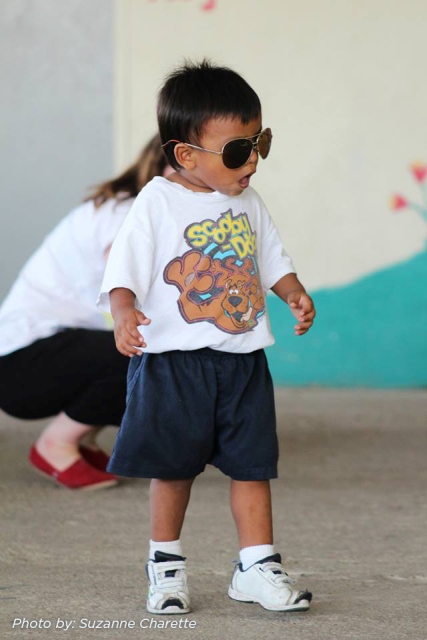 It was the same unadulterated joy that propels all little children to run and play and dance—whether on well-manicured lawns or at the foot of a rubbish heap.
It was the same unadulterated joy that propels all little children to run and play and dance—whether on well-manicured lawns or at the foot of a rubbish heap.
Beauty.
*****
When I was a student studying English, one of the greatest lessons I learned was the idea of forming one’s own “poetic”—a personal philosophy on which to decipher good and valuable literature from the bad. (And yes, there is plenty of bad.)
Ultimately, through the guidance of our professors, most of us at least agreed that true literature should be a balanced representation of truth and beauty. In the absence of truth, beauty cannot thrive. And without beauty, we only have half-truths—because all truth is God’s truth, and God is the ultimate curator of beauty.
But I think the territory of this idea extends far beyond that of literature. Beauty and truth are everywhere, waiting to be uncovered like a treasure in a field, hidden like Diego, waiting to be found.
All truths—even the ones that are difficult to understand like poverty and suffering—are hemmed by threads of beauty that cannot be uprooted. If we only see the tattered ends, the unfinished portions, the pieces of imperfection that we usually discard, we miss the richness of the garment before us.
We miss God.
But if we are like the man in Jesus’ parable, finding beauty makes want us to invest in all of its manifestations—to purchase and cultivate the land from whence it came—to redeem and restore the fertile ground—to plunge our hands in the black loam of the earth and celebrate its fruit.
As witnesses to it, we are not absolved from responsibility—to serve, to mend, to give. Instead, we are absolved from despair itself. Because every fragment of beauty we see originates from a God who sees us, who sees the rich and poor alike, and has chosen to indwell in them both.
 Beauty proclaims—if only in a faint whisper—that God is, indeed, with us, whether we are waking up to a bustling cityscape or to a lush valley of green and gold, somewhere in the hills of Guatemala.
Beauty proclaims—if only in a faint whisper—that God is, indeed, with us, whether we are waking up to a bustling cityscape or to a lush valley of green and gold, somewhere in the hills of Guatemala.




